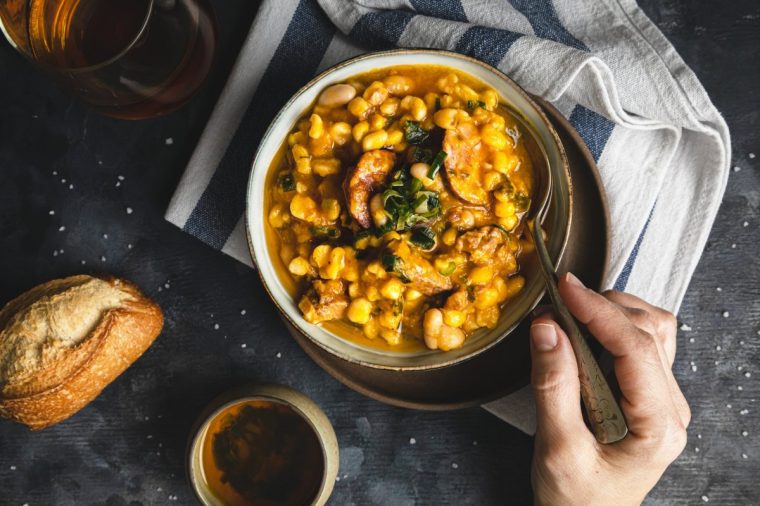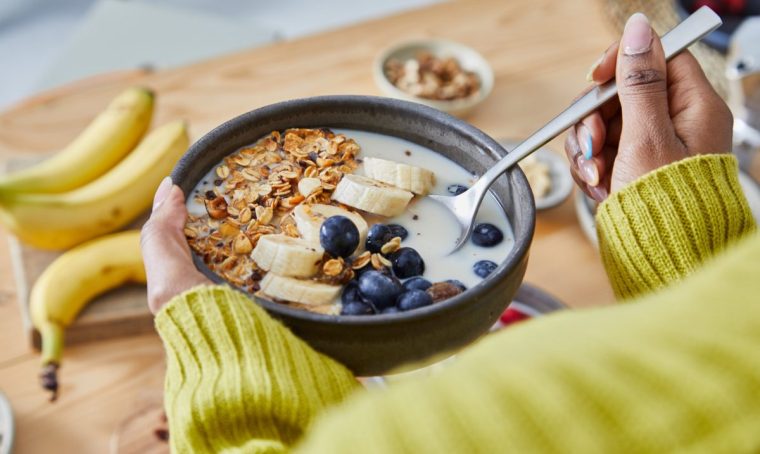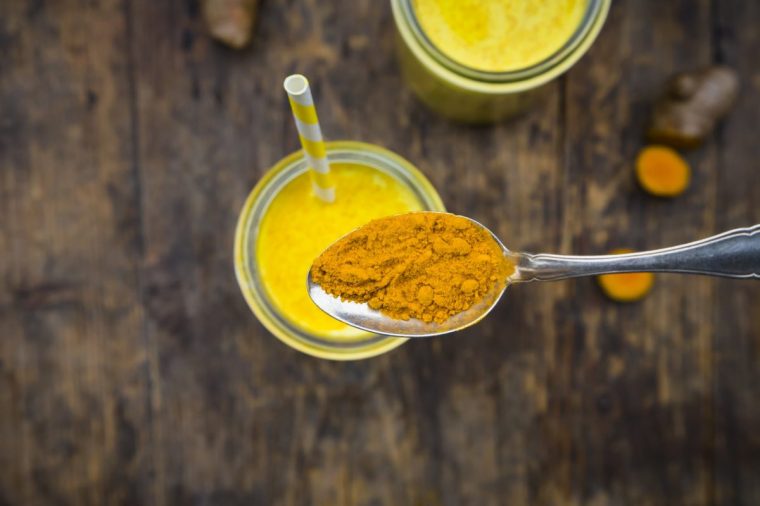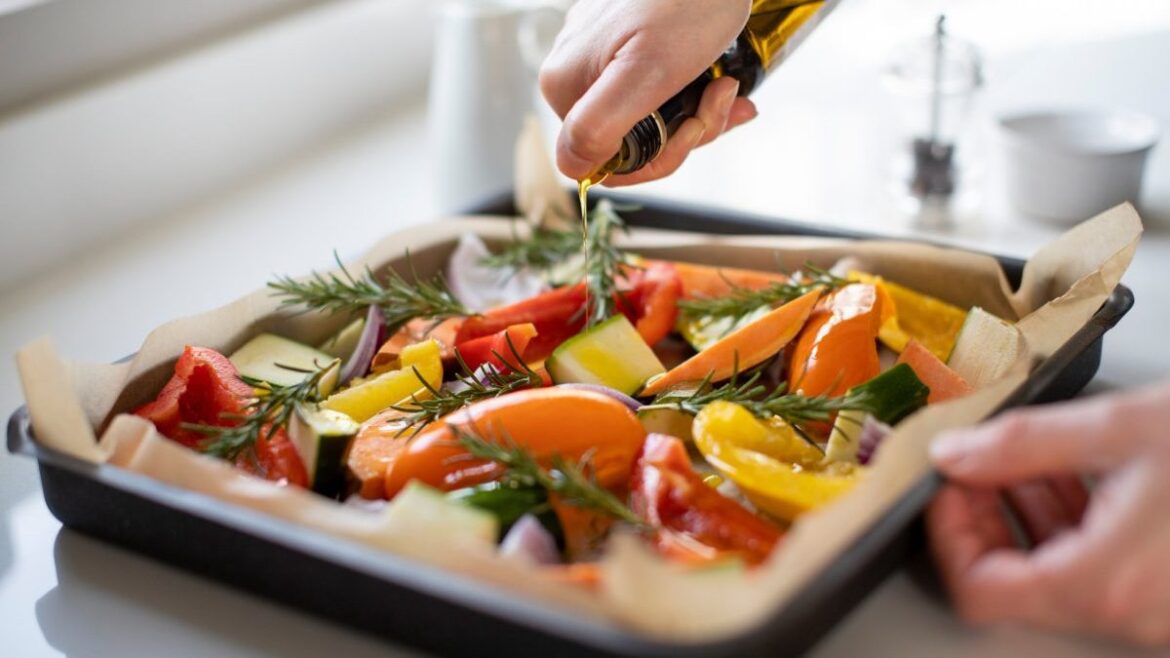Food Standards Agency says unhealthy diets contribute to 13% of UK deaths – these simple ingredients could reduce your risk of chronic disease
While our genetics play a role in how long we live, research consistently finds that our lifestyles are important for longevity too.
“Healthy lifestyles are often associated with delays in the onset of chronic diseases, and their prevention,” explains Rafael de Cabo, PhD, a senior investigator at the US’s National Institute on Aging. This is especially the case for healthy diets, he says.
The Food Standards Agency says unhealthy diets contribute to 13 per cent of UK deaths, partly because they raise the risk of high blood pressure, cholesterol, type 2 diabetes and obesity.
While there aren’t any specific foods that research shows can improve longevity, de Cabo says, one way of eating could: the Mediterranean diet.
“Diets like the Mediterranean diet exemplify a balanced, nutrient-dense approach, which is linked to reduced chronic disease risk and healthier ageing,” says Anna Kallianteri, a registered dietitian and head of dietetics at Uniquely Health.
The Mediterranean diet is based on what people traditionally ate in countries like Spain, Italy, and Greece. It’s high in whole grains, fruit, and vegetables, and low in meat, processed food, and alcohol. Lots of studies have linked it to a longer life expectancy, such as a study by researchers at Harvard Medical School which found that women who followed the diet for 25 years had a 23 per cent lower risk of dying of any cause.
 Eating more legumes could increase your life expectancy by up to 2.2 years for women and 2.5 years for me (Photo: Westend61/Getty)
Eating more legumes could increase your life expectancy by up to 2.2 years for women and 2.5 years for me (Photo: Westend61/Getty)
Here are some of the most important foods in the Mediterranean diet – including one you’re probably already eating, and why incorporating them into your diet could add years to your life.
Olive oil
Olive oil is the main source of fat in the Mediterranean diet – and is “‘liquid gold’ for longevity”, Kallianteri says.
This is because compounds in it can counteract chronic inflammation. Inflammation is a natural response in our bodies that can help injuries or infections heal, but, if it continues over a long time, can be one of the “major drivers of ageing and age-related diseases”, she says.
A 2018 review found that participants who ate more extra-virgin olive oil had lower likelihoods of developing type 2 diabetes, artery disease, and breast cancer because of these anti-inflammatory effects.
There’s no need to drink olive oil to get enough for the longevity benefits to kick in, says Anna Daniels, a registered dietitian and spokesperson for BDA (British Dietetic Association).
“Consuming as little as 1/2 tablespoon a day can help reduce mortality,” she says, because “a little drizzle over meals quickly adds up”. She recommends drizzling it over fish, chicken, or roasted veg.
Legumes like lentils and kidney beans
The Mediterranean diet includes three servings of legumes, including beans, chickpeas, and lentils, a week. They are high in fibre, low in fat, and a great source of plant-based protein.
Eating more legumes could increase your life expectancy by up to 2.2 years for women and 2.5 years for men, one 2022 study by researchers at the University of Bergen, Norway, found – if you’re also reducing the amount of red and processed meat in your diet.
“No single legume reigns supreme; variety is key to unlocking their full health benefits,” Kallianteri says.
However, “chickpeas are also known for reducing cholesterol, and black beans and red kidney beans contain anthocyanins which offer a rich antioxidant profile”, says Daniels. Antioxidants counteract free radicals, which are molecules that damage cells.
Whole grains
Whole grains are minimally processed grains, like oats, brown rice, barley, and quinoa.
“Consuming whole grains regularly, even in small amounts, has been shown to lower overall mortality, in part due to their anti-inflammatory effects and support for a healthy metabolism,” Kallianteri says.
 Eating whole grains regularly has been shown to lower overall mortality (Photo: Marko Jan/Getty)
Eating whole grains regularly has been shown to lower overall mortality (Photo: Marko Jan/Getty)
Researchers at the University of Bergen found that eating more whole grains could add up to two years to women’s lives and 2.3 years to men’s.
Like legumes, there isn’t one whole grain which beats out the rest for helping you live longer.
“Each grain offers its mix of protective plant compounds, so the best approach is variety; enjoying a diverse mix helps you get the full spectrum of health-promoting benefits,” Kallianteri says.
Aim for 225g of whole grains a day if you want the maximum life-lengthening benefits of whole grains, the researchers at the University of Bergen found. This might look like a small bowl of whole grain cereal for breakfast, two thin slices of rye bread with lunch, and some whole grain rice at dinner.
Nuts, especially walnuts
The Mediterranean diet includes three servings of nuts a week, but the University of Bergen researchers found that eating one handful of nuts a day (about 25 grams) gives you your best bet at living longer – up to 1.7 years longer for women, and two years for men.
“Walnuts have often been highlighted in longevity research, with good reason,” Kallianteri says.
For example, in a 2021 study, researchers found that 60-year-olds who ate walnuts five times a week had an average life expectancy around 1.3 years longer than people who didn’t eat walnuts at all. They suggested that walnuts are better for longevity than other nuts because they are high in alpha-linolenic acid (ALA), an omega-3 fatty acid that can help to prevent chronic disease and improve brain health.
“While walnuts stand out, regularly eating a variety of nuts is likely the best way to get the full range of nutrients and health benefits,” Kallianteri says. “Try to consume a daily handful of mixed nuts and seeds.”
Herbs and spices
You might already be eating to extend your life without knowing it, because both Daniels and Kallianteri said that herbs and spices can be great for longevity.
 Spices such as turmeric helps reduce inflammation and protect against age-related diseases (Photo: Westend61/Getty)
Spices such as turmeric helps reduce inflammation and protect against age-related diseases (Photo: Westend61/Getty)
“Often overlooked, these kitchen staples are nutritional powerhouses,” Kallianteri says. “Turmeric, ginger, garlic, cinnamon, and oregano all contain compounds shown to help reduce inflammation and protect against age-related diseases — plus, they add flavour without extra calories or sugar.”
Similarly, Daniels says: “Squeezing a good dose of lemon or lime over foods, and adding in turmeric, basil, and chilli all add differing antioxidants, polyphenols, and vitamins into your food.” Research is still limited on the effects of herbs and spices for longevity, but a 2024 review of available evidence found that eating lots of mixed herbs and spices (6.6 grams per day) could improve vascular and cardiometabolic health, metabolism, and inflammation levels.

